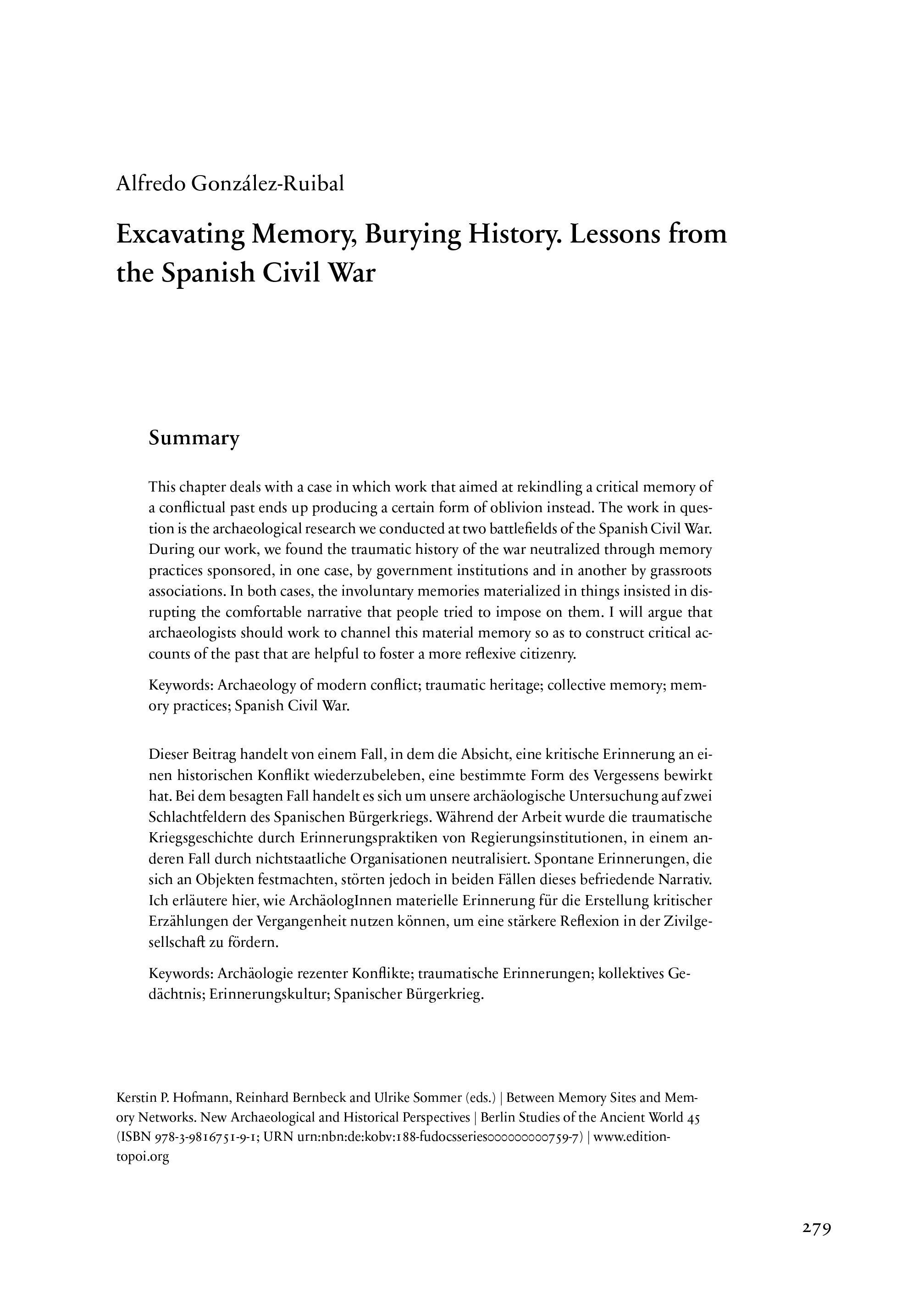Excavating Memory, Burying History. Lessons from the Spanish Civil War
This chapter deals with a case in which work that aimed at rekindling a critical memory of a conflictual past ends up producing a certain form of oblivion instead. The work in question is the archaeological research we conducted at two battlefields of the Spanish Civil War. During our work, we found the traumatic history of the war neutralized through memory practices sponsored, in one case, by government institutions and in another by grassroots associations. In both cases, the involuntary memories materialized in things insisted in disrupting the comfortable narrative that people tried to impose on them. I will argue that archaeologists should work to channel this material memory so as to construct critical accounts of the past that are helpful to foster a more reflexive citizenry.
Dieser Beitrag handelt von einem Fall, in dem die Absicht, eine kritische Erinnerung an einen historischen Konflikt wiederzubeleben, eine bestimmte Form des Vergessens bewirkt hat. Bei dem besagten Fall handelt es sich um unsere archäologische Untersuchung auf zwei Schlachtfeldern des Spanischen Bürgerkriegs. Während der Arbeit wurde die traumatische Kriegsgeschichte durch Erinnerungspraktiken von Regierungsinstitutionen, in einem anderen Fall durch Graswurzel-Organisationen neutralisiert. Spontane Erinnerungen, die sich an Objekten festmachten, störten jedoch in beiden Fällen dieses befriedende Narrativ. Ich erläutere hier, wie ArchäologInnen materielle Erinnerung für die Erstellung kritischer Erzählungen der Vergangenheit nutzen können, um eine stärkere Reflexion in der Zivilgesellschaft zu fördern.

